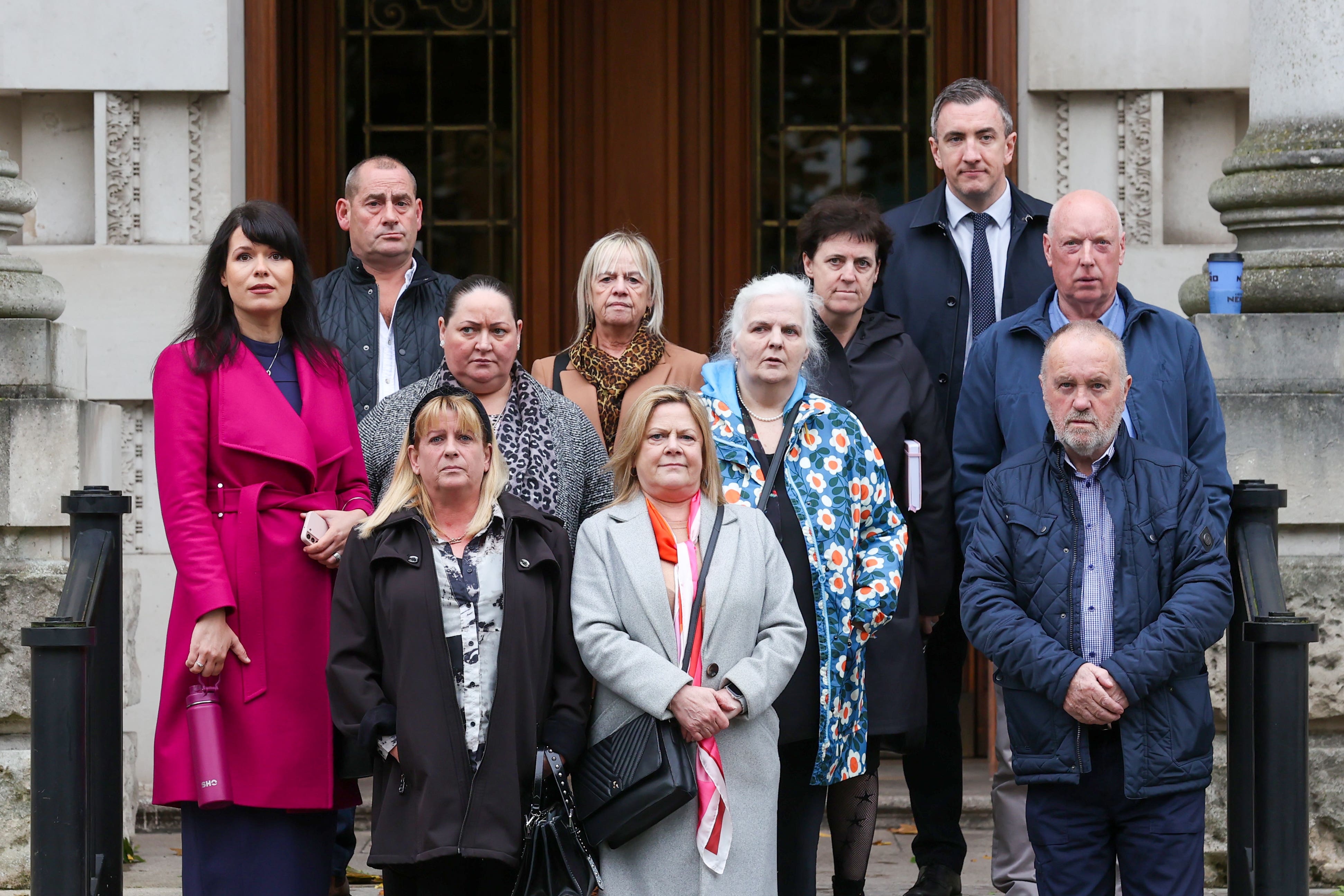Legal challenge to laws dealing with legacy of Troubles to begin
High Court judge Mr Justice Colton will hear the case at the Royal Courts of Justice in Belfast.

A legal challenge to the Government’s new laws to deal with the legacy of the Northern Ireland Troubles is due to begin on Tuesday.
High Court judge Mr Justice Colton will hear the case at the Royal Courts of Justice in Belfast.
The Northern Ireland Troubles (Legacy and Reconciliation) Act received royal assent in September despite widespread opposition from political parties, victims’ organisations in Northern Ireland and the Irish government.
Aspects of the laws include a limited form of immunity from prosecution for Troubles-related offences for those who co-operate with the new Independent Commission for Reconciliation and Information Recovery (ICRIR).
The new Act will also halt future civil cases and legacy inquests.
Multiple Troubles victims and family members launched judicial reviews to challenge aspects of the Act.
Mr Justice Colton has directed that the lead case will be a joint submission brought by Martina Dillon, John McEvoy and Linda McManus.
Ms Dillon’s husband Seamus was shot dead outside the Glengannon Hotel in Dungannon on December 27 1997. An inquest into his death has opened.
Mr McEvoy narrowly escaped being killed in the loyalist gun attack on the Thierafurth Inn in Kilcoo, Co Down, in 1992. The High Court has previously ruled there has not been in effective investigation into the attack in which another man, Peter McCormack, was killed.
Ms McManus is the daughter of James McManus, who was injured in a gun attack on the Sean Graham Bookmakers on the Ormeau Road, Belfast, in 1992. She has issued a civil claim seeking damages.
Ms Dillon said: “Truth and justice are not too much to ask, we shouldn’t have to fight for decades to get it.
“Victims have been shamefully ignored; we did not want this law.
“We want answers about what happened to our loved ones, and we want accountability.
“I fight this oppressive legislation in my husband’s memory and in solidarity with other victims having their rights denied.”
Grainne Teggart, Amnesty International UK’s Northern Ireland deputy director, said: “This case has significant implications, not just in the UK but internationally.
“We have repeatedly warned about the concerning precedent which could be set by this legislation which provides a blueprint for letting state forces and armed groups off with murder and other serious crimes.”
Mr Justice Colton has previously said challenges to the Act will focus on a number of areas, including the establishment of the ICRIR, the cessation of police investigations, the cessation of inquests and civil proceedings and the potential immunity from prosecution.
However, he said the court’s primary focus would be the argument that sections of the Act are incompatible with the European Convention on Human Rights.
The hearing is expected to last at least five days.
Bookmark popover
Removed from bookmarks